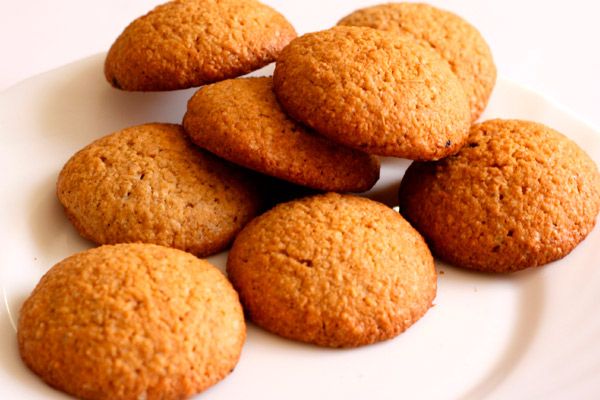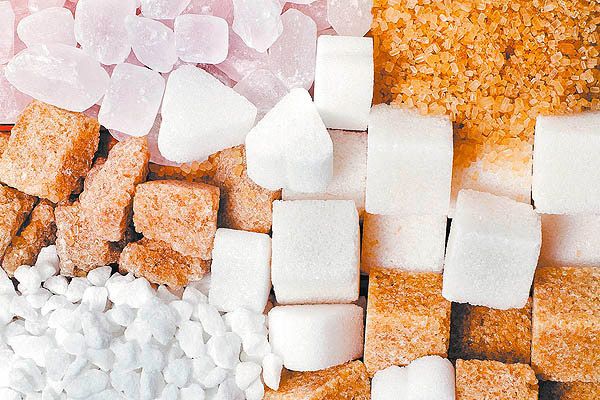Medical expert of the article
New publications
Sweets in gastritis with hyperacidity
Last reviewed: 03.07.2025

All iLive content is medically reviewed or fact checked to ensure as much factual accuracy as possible.
We have strict sourcing guidelines and only link to reputable media sites, academic research institutions and, whenever possible, medically peer reviewed studies. Note that the numbers in parentheses ([1], [2], etc.) are clickable links to these studies.
If you feel that any of our content is inaccurate, out-of-date, or otherwise questionable, please select it and press Ctrl + Enter.
Any gastrointestinal disease requires a strict diet. Let's consider whether it is possible to eat sweets with gastritis with high acidity and other nutritional features.
The inflammatory process in the stomach walls is gastritis. Every year this disease affects more and more people, the majority of whom are young patients. This gastroenterological pathology is a complex of processes in the digestive tract. Their treatment and dietary nutrition features are classified by the following factors:
- General condition of the gastrointestinal tract: low or high acidity.
- The degree of damage to the epithelium and mucous membrane of the stomach.
- The nature of the course of the disease: acute or chronic.
The symptoms of the disease depend on the above factors. Gastritis with increased acidity is considered a superficial lesion. It can occur due to erosion of the stomach walls or the proliferation of the Helicobacter Pylori bacteria. At the moment, increased acidity is not considered an important diagnostic criterion, since the disease is divided depending on the disorders in the mucous membrane: erosive, hypertrophic, atrophic.
The main symptoms of stomach inflammation with high acidity:
- Severe and regular heartburn.
- Frequent attacks of aerophagia with a sour taste.
- Painful sensations in the left hypochondrium and epigastric region.
- Nausea and vomiting (often occurs with long breaks in food intake).
- Appetite disorders.
- Flatulence and abdominal pain at night.
The chronic form has similar symptoms. But it can be significantly aggravated by such factors as: bad habits (smoking, alcoholism), severe stress, overeating and poor nutrition, food poisoning. Complex treatment is indicated to eliminate painful symptoms. Therapy consists of taking various medications and a diet aimed at restoring normal digestion and improving well-being.
 [ 1 ]
[ 1 ]
Indications
The main indications for dietary nutrition for gastritis are based on its painful symptoms and pathological impact on the body. Therapeutic nutrition should be designed so as not to provoke irritation of the gastric mucosa. Sugar and sweets are not prohibited products. They can be consumed, but only in moderation.
Let's look at the main dietary recommendations aimed at improving digestion:
- Food should be at room temperature. In case of exacerbation, all sweets should be excluded from the diet. During this period, the basis of the menu should be porridge on water, boiled or baked vegetables.
- The diet should be rich in vitamins, which can be obtained from seasonal vegetables and fruits. Also, do not forget about pharmacy vitamin and mineral complexes.
- As for sweets, with gastritis with high acidity, you can eat cookies (not sweet), dried fruits, various jams and pastilles, marshmallows, jelly, marmalade, fruit puree, toffee, various juices, teas, jelly and compotes.
Patients are advised to permanently abstain from or reduce to a minimum the consumption of salty and spicy foods, fatty broths and fatty meats and fish, alcohol, sour berries, fruits and vegetables.
General information sweets in gastritis with hyperacidity
Honey
Natural honey is useful for gastritis of any form. It contains many exceptional substances that are necessary for patients with high acidity. The beekeeping product has the following properties:
- Relieves inflammation of the gastrointestinal tract and promotes healing of ulcers on the mucous membrane.
- Stimulates the secretion of gastric juice and improves digestion.
- It has a general strengthening effect on the nervous system and the body.
- Contains amino acids that affect protein synthesis and restore damaged cells.
- Enzymes and vitamins A, B, E improve metabolism, have a sedative and analgesic effect.
- Honey taken on an empty stomach reduces the viscosity of mucus and decreases the amount of hydrochloric acid.
For treatment, it is necessary to use only fresh honey. When using it, it is necessary to follow a number of rules: do not heat the product above 40°C, do not consume more than 3-5 spoons per day, take the first dose on an empty stomach.

Let's look at several medicinal recipes based on honey that can be used to treat gastritis with high acidity:
- Dissolve a tablespoon of honey in 250 ml of warm water and drink 1-2 hours before meals. You need to drink 3-4 glasses of honey drink per day, the course of treatment is 2 months. During this period, any other sweets should be excluded.
- Grate a couple of potato tubers and squeeze out the juice. Dilute the juice with a spoon of honey and eat an hour before meals. The course of treatment is 10 days, after a month's break the therapy must be repeated.
- Prepare a herbal infusion: 20 g each of flax seeds, fennel fruits, licorice root, calamus root, and 10 g each of linden flowers and peppermint. Pour 500 ml of boiling water over a couple of spoons of the herbal mixture, simmer for 10-15 minutes, and let steep for 1-2 hours. Once the decoction has cooled, strain it, add 2 spoons of honey, and divide into three doses throughout the day before meals.
In some patients with high acidity, honey taken on an empty stomach can provoke heartburn. To eliminate it, it is recommended to add the product to cottage cheese, dairy products or porridge. This natural sweet can be taken with medications. Honey reduces the side effects of many drugs.
Halva
A thick dense mass of ground nuts, seeds or sesame and honey is halva. This product is in the category of undesirable for stomach inflammation. When it gets into the body, it can provoke a relapse or cause serious exacerbations of the disease.
The sweet is prohibited due to its heavy composition: a large amount of fiber, vegetable oils and sugar syrup. These ingredients put an increased load on the stomach and irritate the mucous membrane.
Halva can be consumed for gastritis with high acidity only in the remission stage, when there are no painful sensations or signs of pathology. In this case, you can eat no more than 50 g of sweets per month and not on an empty stomach. When buying halva, you should choose only a fresh and high-quality product.
Marshmallow
The ideal treat without sweeteners and other harmful additives is marshmallow. It contains pectin and thickeners that improve digestion. Sweetness can be consumed with gastritis, as it does not cause heaviness and does not affect the functioning of the gastrointestinal tract.
- Marshmallow lowers blood cholesterol levels and helps remove toxic substances.
- Pectin increases the body's resistance to various diseases.
- The sweetness contains a lot of iron, phosphorus and other microelements.
If the marshmallow is made on the basis of agar-agar, then it is not only healthy, but also contains a minimum of calories. Such a product contains a lot of calcium and iodine, has a dense consistency. Glucose improves brain activity, increases energy levels and improves mood.
Despite the many useful properties, marshmallows should not be consumed without control. The product contains a lot of sugar, so it is prohibited for patients with diabetes. When choosing a sweet, pay attention to its color. White marshmallows do not contain dyes. Pink and chocolate-covered ones are not recommended for consumption, as they contain a lot of calories and other artificial additives. It is undesirable to consume this delicacy if you have carbohydrate metabolism disorders, as it contains a lot of simple carbohydrates.
Chocolate
Eating chocolate with gastritis with high acidity is contraindicated. The product is quite fatty, difficult to digest, provokes irritation of the mucous membrane and pain in the epigastrium. When it gets into the stomach, it provokes increased production of hydrochloric acid. It can be consumed by patients with low acidity, since cocoa beans injure the thinned mucous membrane of the gastrointestinal tract and increase the level of acidity.
Contraindications to such a popular sweet are related to its composition: fatty vegetable and cocoa butter, caffeine. Let's consider the main types of chocolate and their effect on the body:
- White – does not contain caffeine or cocoa powder. It contains a large amount of vegetable fats, which makes it the sweetest.
- Bitter – consists of cocoa butter and powder. Contains a minimum of sugar, but a lot of caffeine and vegetable fats.
- Milk – made from dry milk, has a high fat content. Contains caffeine.
Based on this, there is no ideal chocolate for patients with gastritis. At the same time, milk chocolate should be excluded from the diet forever, as well as sweets with various additives (nuts, alcohol, dried fruits). In addition, the delicacy is addictive. It is possible to find a replacement for it, but when choosing an alternative, it is necessary to take into account its fat content and the presence of artificial additives. This can be marshmallows, honey, natural fruit marmalade, jelly, sweet jams, toffees and even preserves.
Cookie
Many patients mistakenly believe that gastritis is not a reason to refuse baked goods and other sweets. Cookies can be eaten with this disease, but only yeast-free, that is, unleavened. Various yeast sweet pastries with impregnations, fondants and creams are contraindicated.

Patients are advised to choose the following types of cookies:
- Biscuit - prepared on the basis of water and flour. Does not cause irritation and inflammation of the stomach. Has a pleasant taste. Biscuits can be eaten even in acute stages of pathology.
- Oatmeal cookies – you can eat either store-bought or homemade ones.
When choosing such a dessert, you need to remember that the cookies should not be rich and dry, without flavors and sweeteners.
Jam
Jam should be consumed with special caution in case of gastritis. When choosing homemade sweets, it is very important to consider the acidity of the stomach. Thus, with increased acidity, unsweetened jam can provoke an exacerbation of the disease. That is, you can eat sweet desserts made from natural ingredients, avoiding sour berry flavors.
Regardless of the form of stomach inflammation, raspberry jam is prohibited. Gastroenterologists do not recommend eating any sweets from this berry. Preference should be given to homemade jams, marmalade and apple sorbet.
To prepare the sweetness, take a couple of sweet apples, peel them and remove the seeds. The fruit must be baked or cooked in the microwave until soft and pureed. You can add cinnamon and a spoonful of honey to the finished apple pulp. This jam is good for the body, strengthens the immune system and improves mood.
Sugar
Inflammatory processes in the stomach walls cause painful symptoms, for the elimination of which a therapeutic diet is indicated. Sugar in gastritis with high acidity is not a prohibited product, but its consumption should be limited. This is due to the fact that it does not have a very good effect on the gastrointestinal mucosa, and its increased concentrations can provoke an exacerbation of the disease, cause an ulcer of the duodenum or stomach.

Sugar substitutes for gastritis are also not recommended. The most popular of them are: sorbitol, cyclamate, saccharin, sucrazit, aspartame, xylitol, sucrazit and acesulfame potassium. Before using them, you should consult a gastroenterologist. This is due to the fact that some drugs aggravate the pathological condition of the stomach. For example, xylitol and sorbitol are contraindicated in all forms of gastritis and, if used without supervision, can cause tumor neoplasms.
Candies
Many patients with gastritis are interested in the same question - can they eat candy? The answer depends on the form of the disease, the type of sweets and their effect on the gastrointestinal tract. Candy, like chocolate, is included in the category of prohibited products. This is due to the fact that they contain a lot of soy and sugar, which cause fermentation processes in the stomach, which increases acidity to a dangerous level.

Let's look at the most popular types of candy and the possibilities of their consumption:
- Caramels are the most harmless, as they are made from fruit and berry puree or juice. The filling is jam, which is allowed for gastritis.
- Chocolate - since they are made from cocoa beans, palm oil and artificial additives, they, like chocolate, are prohibited.
- Marmalade - this type of candy is allowed, but only on condition that they are completely natural, that is, do not contain harmful additives.
- Filled and layered – as a rule, such sweets are quite high in calories and fat, and therefore are prohibited.
Based on this, you can eat sweets with gastritis, but you need to choose them carefully, giving preference to natural ingredients. It is better to eat sweets after the main meal, so as not to burden the stomach and not to irritate the mucous membrane.
Condensed milk
A dessert loved by many sweet tooths is condensed milk. In case of gastritis with high acidity, it should not be abused, however, as well as other sweets. Condensed milk is a product of deep processing, it contains the same microelements as fresh milk (calcium and milk proteins).
You can use condensed milk for gastritis, its benefits are based on the following properties:
- Since the product is made from milk, it coats the gastric mucosa, protecting it from the irritating effects of food and gastric juice.
- Due to its high calorie content, condensed milk is very nutritious. It stimulates the production of endorphins, improves brain activity and mood.
- In case of gastritis with high acidity, it is necessary to consume products that neutralize the aggressive gastric environment. Condensed milk has such an effect.
- It is easily digestible and does not burden the digestive system.
Due to its high fat and calorie content, you should not abuse condensed milk, since, despite all its beneficial properties, it can provoke or worsen irritation of the gastric mucosa.
Benefits
Uncontrolled consumption of any products, especially sweets, with stomach inflammation is very unsafe, as it can provoke an exacerbation. With the right approach to nutrition, various delicacies are not only allowed, but also useful for the body. The benefits of sweets are based on their composition. Such products are rich in carbohydrates, which participate in the formation of hormones, cell membranes and proteins.
- Sweets are a source of energy for the body. Carbohydrates and simple sugars do not have complex structural bonds, so they are quickly eliminated from the body, give it a good boost of energy and improve mental activity.
- To cleanse the body of harmful substances, plant fiber is necessary, which stimulates the intestines and gives a feeling of satiety. Dried fruits, buns or biscuits made from wholemeal flour with seeds not only bring pleasure, but also enrich the body with fiber, organic acids, vitamins and minerals.
- Sweet tea with lemon, cinnamon or a small piece of chocolate act as a kind of immunostimulant. Vitamin C contained in lemon reduces stress levels. The aroma of vanilla, cinnamon and chocolate promotes the production of immunoglobulin.
- Sweets increase the level of the hormone serotonin in the blood. The hormone of happiness has a beneficial effect on the nervous system, minimizes stress levels, improves mood and replenishes the amount of antioxidants in the body.
Also, do not forget about the individual properties of each sweet. For example, chocolate stimulates the process of hematopoiesis, and the use of halva normalizes blood pressure and eliminates insomnia.
 [ 4 ]
[ 4 ]
Contraindications
The main contraindications to eating sweets with gastritis are related to their high fat content and carbohydrate-rich composition. Cakes, pastries, chocolate, various sweet creams and pomades, waffles, desserts with alcohol, yeast and rich pastries are prohibited. Contraindications also apply to drinks, soda and store-bought juices with preservatives irritate the gastric mucosa, aggravating the course of the disease.
Sweets for gastritis with high acidity should be natural. Sugar can be replaced with honey and dried fruits. It is also worth limiting glucose consumption and switching to healthier sweeteners contained in fruits: lactulose, fructose. It is better to drink tea without sugar, replacing it with a spoonful of sweet jam or honey. Following these recommendations will help diversify a strict therapeutic diet.
Possible risks
Any sweets consumed in case of gastrointestinal tract lesions cause more harm than good. The harm of high-carbohydrate and sugar-containing products is in:
- Excessive consumption of sweets provokes irritation of the gastric mucosa and increases the risk of metabolic disorders. Frequent consumption of sugar can lead to the development of not only gastritis, but also diabetes or peptic ulcer disease.
- Easy absorption of sugar is one of the reasons for overeating and obesity. Eating a lot of calories with a sedentary lifestyle provokes rapid weight gain. Obesity has a negative impact on the functioning of the entire body, especially the digestive organs.
- Almost all store-bought sweets contain dyes and other artificial ingredients. Such food additives are not only harmful, but also dangerous for the body. They can cause allergic reactions and gastrointestinal disorders of varying severity.
- Any sweets are harmful to teeth. Sugar is an ideal food for bacteria that secrete lactic acid, which destroys tooth enamel. And those who like to gnaw on caramels are at risk of mechanical damage to their teeth.
It is necessary to approach the consumption of sweets with gastritis and other gastrointestinal diseases thoughtfully and pragmatically. Of course, you should not completely give them up. Moderate consumption of permitted delicacies will not harm the body, but will give you a great mood.
 [ 11 ]
[ 11 ]

